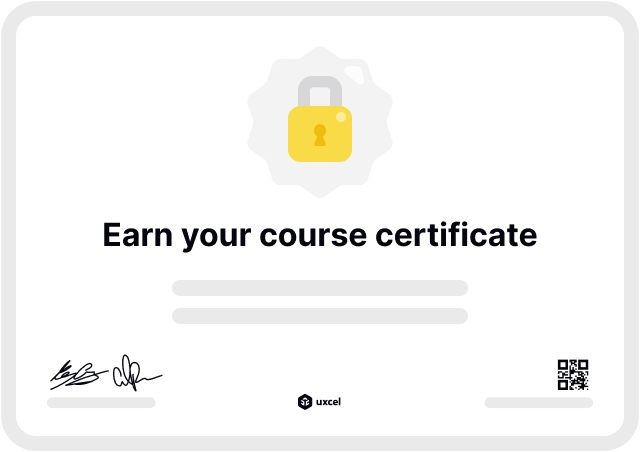The course teaches digital marketing fundamentals, how to work on social media campaigns, how to create and manage a website/blog, and more.
This foundational module provides a comprehensive overview of the digital marketing landscape. Students will learn about the key concepts, channels, and strategies involved in effectively reaching and engaging online audiences.
Key Topics:
Learning Objectives:
This module focuses on creating custom WordPress websites using the popular page builder Elementor and the e-commerce plugin WooCommerce. Students will learn how to design and develop visually appealing, functional websites that can be used for both personal and business purposes.
Key Topics:
Learning Objectives:
This module provides a comprehensive overview of the current digital marketing landscape, including key trends, challenges, and opportunities. Students will learn about the latest developments in technology, consumer behavior, and marketing strategies.
Key Topics:
Learning Objectives:
Behavior marketing, also known as behavioral targeting, is a marketing strategy that uses data about a user’s past behavior to personalize their online experience. This module will explore the concepts, techniques, and applications of behavior marketing.
Key Topics:
Learning Objectives:
Search Engine Optimization (SEO) is the practice of optimizing websites to improve their visibility and ranking in search engine results pages (SERPs). This module will cover the fundamental techniques and strategies for optimizing websites for search engines like Google.
Key Topics:
Learning Objectives:
Search Engine Marketing (SEM) is a form of digital marketing that involves promoting websites through paid advertising on search engines like Google. This module will cover the strategies and techniques for creating and managing effective SEM campaigns.
Key Topics:
Learning Objectives:
Social Media Marketing (SMM) focuses on using social media platforms like Facebook, Instagram, Twitter, and LinkedIn to reach and engage with target audiences. This module will cover the strategies, tactics, and tools for effective social media marketing.
Key Topics:
Learning Objectives:
Email marketing is a powerful tool for building relationships, nurturing leads, and driving sales. This module will cover the strategies and techniques for creating effective email campaigns.
Key Topics:
Learning Objectives:
Mobile marketing is a rapidly growing field that focuses on reaching and engaging consumers on their mobile devices. This module will cover the strategies, tactics, and technologies for effective mobile marketing.
Key Topics:
Learning Objectives:
App Store Optimization (ASO) is the practice of optimizing app listings to improve their visibility and ranking in app store search results. This module will cover the strategies and techniques for effective ASO.
Key Topics:
Learning Objectives:
Content strategy is the planning, creation, and management of content to achieve specific business goals. This module will cover the principles and techniques for developing effective content strategies.
Key Topics:
Learning Objectives:
Paid campaigns, such as Pay-Per-Click (PPC) advertising and social media advertising, are effective ways to reach and engage target audiences. This module will cover the strategies and techniques for creating and managing successful paid campaigns.
Key Topics:
Learning Objectives:
Web analytics is essential for understanding the performance of digital marketing campaigns and measuring return on investment (ROI). This module will cover the tools, techniques, and metrics used to evaluate the effectiveness of digital marketing efforts.
Key Topics:
Learning Objectives:
Artificial Intelligence (AI) and automation are transforming the digital marketing landscape. This module will explore the applications of AI and automation in digital marketing and how these technologies can be leveraged to improve efficiency and effectiveness.
Key Topics:
Learning Objectives:
Affiliate marketing is a performance-based marketing model where businesses pay affiliates a commission for driving sales or leads. This module will cover the strategies and techniques for effective affiliate marketing.
Key Topics:
Learning Objectives:
Influencer marketing involves partnering with influential individuals to promote products or services to their followers. This module will cover the strategies and techniques for effective influencer marketing.
Key Topics:
Learning Objectives:
Ecommerce marketing is a specialized field that focuses on promoting products and services online. This module will cover the strategies and techniques for successful ecommerce marketing.
Key Topics:
Learning Objectives:
Selling products on online marketplaces like Amazon, Snapdeal, Meesho and Flipkart can significantly boost sales and reach a wider audience. This module will cover the strategies and techniques for optimizing product listings on these platforms.
Key Topics:
Learning Objectives:
Blogging and copywriting are essential skills for creating compelling content that attracts and engages audiences. This module will cover the strategies and techniques for effective blogging and copywriting.
Key Topics:
Learning Objectives:
Video marketing is a powerful tool for capturing attention, driving engagement, and increasing conversions. This module will cover the strategies and techniques for creating and distributing effective video content.
Key Topics:
Learning Objectives:
WhatsApp marketing is a growing trend that involves using WhatsApp to reach and engage with customers. This module will cover the strategies and techniques for effective WhatsApp marketing.
Key Topics:
Learning Objectives:
Heatmapping, Core Web Vitals, and User Experience (UX) are interconnected concepts that play a crucial role in improving website performance and user satisfaction. This module will explore these concepts in detail.
Key Topics:
Learning Objectives:

₹45,999.00 Original price was: ₹45,999.00.₹29,999.00Current price is: ₹29,999.00.
Lorem ipsum dolor sit amet, consectetur adipiscing elit. Ut elit tellus, luctus nec ullamcorper mattis, pulvinar dapibus leo.

User Name
Course name
Lorem ipsum dolor sit amet, consectetur adipiscing elit. Ut elit tellus, luctus nec ullamcorper mattis, pulvinar dapibus leo.

User Name
Course name
Lorem ipsum dolor sit amet, consectetur adipiscing elit. Ut elit tellus, luctus nec ullamcorper mattis, pulvinar dapibus leo.

User Name
Course name
Lorem ipsum dolor sit amet, consectetur adipiscing elit. Ut elit tellus, luctus nec ullamcorper mattis, pulvinar dapibus leo.

User Name
Course name
Lorem ipsum dolor sit amet, consectetur adipiscing elit. Ut elit tellus, luctus nec ullamcorper mattis, pulvinar dapibus leo.

User Name
Course name
Lorem ipsum dolor sit amet, consectetur adipiscing elit. Ut elit tellus, luctus nec ullamcorper mattis, pulvinar dapibus leo.

User Name
Course name

Master the art of ranking your website on Google with this interactive short course.
Build company newsletters, brochures, annual reports. Learn typography, color theory & graphic design skills in InDesign.
Create Beautiful Designs in Adobe Express, Design The Best Social Media Content, Create Amazing Videos in Adobe Express.
Learn Graphic Design in Adobe Illustrator CC: Create Vector Graphics, Logo Design, Icon Design with 30+practice projects.
Learn Adobe After Effects to create stunning motion graphics and visual effects. Perfect for video editors, animators, and content creators.
Learn Color Correction in Adobe Lightroom CC Step by Step. For Portrait & Outdoor Photography. Grading, Curves, Toning.
Digital marketing courses often encompass various topics essential for modern marketing strategies. These include search engine optimization (SEO), content marketing, social media marketing, email marketing, and pay-per-click (PPC) advertising. Courses also cover analytics and data-driven decision-making, which help marketers track and optimize their campaigns. Learners will explore the latest tools and techniques used in the industry to create effective marketing strategies across various digital platforms.
While there are no strict academic prerequisites, a basic understanding of computers and the internet is recommended. A keen interest in digital marketing is essential.
The course duration will vary depending on the specific program. It could be a few weeks, months, or even a year. The format can include live online classes, recorded lectures, case studies, and practical assignments.
The course fee will depend on the specific program and its duration. We offer flexible payment options to suit your budget.
The course will cover a wide range of digital marketing topics, including:
Yes, the course is designed to provide practical, hands-on experience. You will work on real-world projects and case studies to apply your learning.
Yes, upon successful completion of the course, you will receive a certificate from NexCorp Academy.
Digital marketing is a rapidly growing field with high demand for skilled professionals. This course will equip you with the knowledge and skills needed to pursue a successful career in digital marketing.
We offer career guidance and support to our students, including assistance with resume building and job hunting. However, we cannot guarantee job placement.
Yes, subject to availability and terms and conditions, you may be able to switch to a different program within NexCorp Academy.
Need Career Guidance? Call us!
Our experts are available around the clock to assist you.

NexCorp Academy provides educational content and resources intended for informational purposes only. While we strive to ensure the accuracy and reliability of the information presented, we do not guarantee its completeness or suitability for any specific purpose. Users are encouraged to conduct their own research and consult with professionals as needed. NexCorp Academy is not liable for any losses or damages arising from the use of our materials. Participation in any course or program is at your own risk.